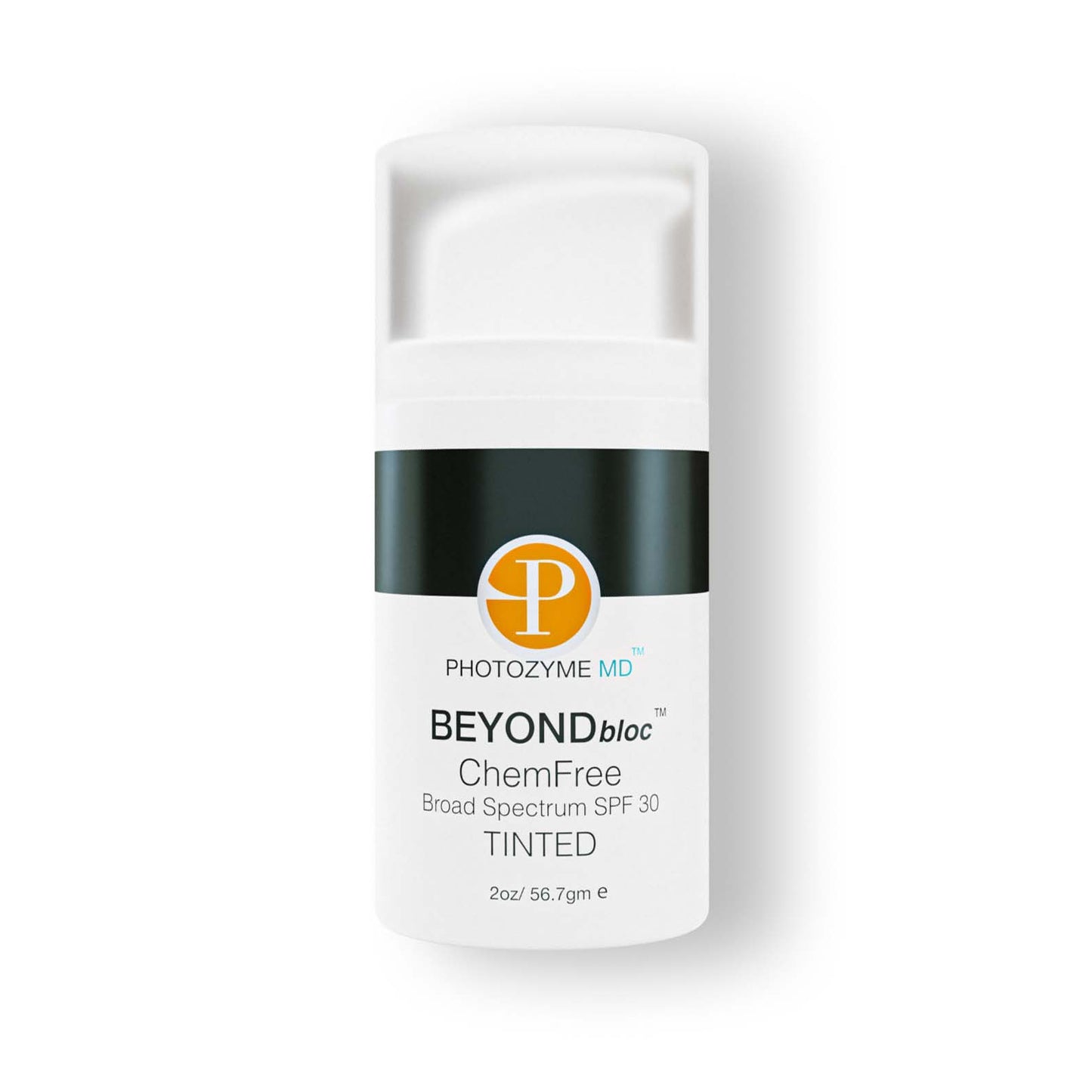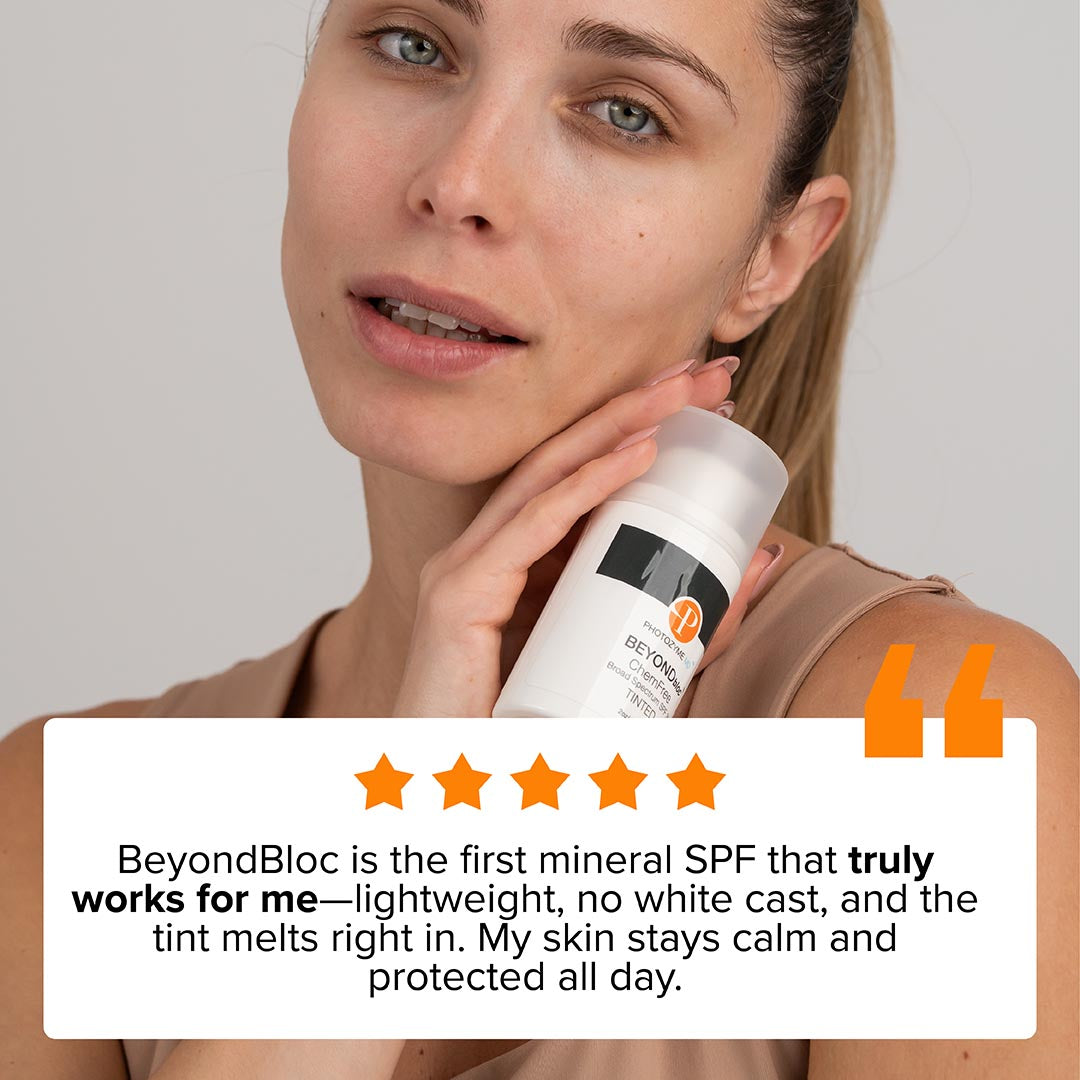

This store requires javascript to be enabled for some features to work correctly.
In advertisements for sunscreens, face moisturizers with SPF protection, and even cosmetics with SPF, it’s easy to see that women are often the target. But sunscreen is just as vital to men as it is to women. The same threats — including skin cancer, premature aging, wrinkles, and dark spots — can affect men who are exposed to UV rays.


SPF, or Sun Protection Factor, is a critical measurement used to determine the level of UVB protection a sunscreen offers. The SPF number indicates how long UVB rays would take to redden your skin when using the product as directed compared to the time without sunscreen. For example, an SPF of 30 means that it would take you approximately 30 times longer to burn than if you were not wearing any sunscreen.
It’s important to select a sunscreen with sufficient SPF to protect against UVB rays, which are responsible for causing sunburns and contributing to skin cancer. UVB rays can be particularly harmful during the middle of the day, which is when they are at their strongest. However, it's crucial to note that no sunscreen can block 100% of UVB rays, and high-SPF sunscreens do not provide a commensurate level of increase in protection. For instance, while SPF 30 sunscreens filter out about 97% of UVB rays, SPF 50 sunscreens filter out about 98%.
In addition to UVB protection, it’s also essential to consider a sunscreen’s ability to protect against UVA rays. Unlike UVB, UVA rays penetrate the skin more deeply and significantly contribute to skin aging and wrinkling. Many sunscreens sold today are broad-spectrum formulas, meaning they provide protection against both UVA and UVB rays. When looking for the best sunscreen for men, choosing a broad-spectrum formula with a high SPF is important, particularly for those spending extended periods outdoors.
Moreover, for those involved in intense physical activities or water sports, choosing a water-resistant sunscreen is crucial. It maintains its SPF protection even after immersion in water or after sweating, providing continuous protection throughout exposure.
Understanding the SPF is more than just choosing a high number; it’s about finding the right type of protection that fits your lifestyle and skin type while ensuring you are safe from the broad spectrum of harmful UV rays.

When scouting for the best sunscreen for men, knowing which ingredients make a product effective is crucial. Here is a list of pivotal ingredients to consider:
To ensure comprehensive protection, opt for sunscreens offering broad-spectrum coverage. This covers both UVA (aging rays that can penetrate deeply into the skin) and UVB (burning rays that damage the skin's surface). Seek sunscreens that explicitly mention this kind of protection on their labels.
The Sun Protection Factor (SPF) is a measure of how well a sunscreen will protect skin from UVB rays. For daily use, dermatologists recommend a sunscreen with an SPF of at least 30, which blocks about 97% of UVB rays. If you are spending extended time outdoors, consider an SPF of 50 or higher.
An enzyme derived from algae, Photolyase has been proven to help reduce previous sun damage by aiding in the repair of DNA. Sunscreens that contain Photolyase can provide an additional shield against future sun damage, significantly optimizing skin protection and health.
These mineral-based ingredients physically block UV radiation by sitting on top of the skin and reflecting the sun’s rays. Ideal for sensitive skin, these ingredients are less likely to cause irritation or exacerbate skin conditions.
Antioxidants like Vitamin E, Vitamin C, and green tea extract can enhance sun protection by neutralizing free radicals produced by UV radiation. The inclusion of these antioxidants can help protect against skin aging and the risk of skin cancer.
By choosing a sunscreen that includes these vital ingredients, men can elevate their skin protection, effectively guarding against both immediate and long-term sun damage. For those especially concerned about maintaining youthful, healthy skin, selecting a product that also supports skin repair and resilience can help.
When choosing the best sunscreen for men, understanding the distinction between physical and chemical sunscreens is crucial. Each type has its own mechanism for protecting skin from harmful UV rays.
Physical sunscreens, also known as mineral sunscreens, use active mineral ingredients, typically zinc oxide or titanium dioxide. These ingredients work by sitting on top of the skin to block and reflect away UV radiation physically. Physical sunscreens are generally favored for sensitive-skinned men, as they are less likely to cause irritation. Additionally, they offer broad-spectrum protection against both UVA and UVB rays immediately upon application—a definite plus for the active man needing instant protection.
Chemical sunscreens, on the other hand, contain organic (carbon-based) compounds, like oxybenzone, octinoxate, octisalate, and avobenzone, which create a chemical reaction and work by absorbing UV radiation, converting it into heat, and then releasing that heat from the skin.
Ultimately, the best type of sunscreen for men depends on individual skin type, lifestyle, and personal preference. Whether physical or chemical, the essential thing is that the sunscreen is broad-spectrum and has an appropriate SPF to ensure effective protection against sun damage.
Broad-spectrum sunscreen is essential for comprehensive skin protection. Unlike sunscreens that only block ultraviolet B (UVB) rays, broad-spectrum products are formulated to shield skin from both UVB and ultraviolet A (UVA) rays. UVB rays are primarily responsible for sunburn and play a significant role in potentially developing skin cancer. However, UVA rays penetrate deeper into the skin. They are associated with long-term skin damage, such as wrinkles, sunspots, and other signs of premature aging.
For men, who may not typically include a range of skincare products in their daily regimen, choosing a broad-spectrum sunscreen is particularly crucial. Often exposed to outdoor sports, work, and other activities, men's skin requires robust protection to combat the full spectrum of ultraviolet radiation. Furthermore, since men's skin can be thicker and oilier, a broad-spectrum formula also helps manage not just sun protection but overall skin health.
Advanced broad-spectrum sunscreens, like those offered by Photozyme, leverage the power of cutting-edge science to not only protect but also repair the skin. The inclusion of Photolyase, a DNA repair enzyme, in conjunction with effective UVA and UVB filters, provides a superior defense mechanism against potential photodamage and aids in reducing the risks associated with prolonged sun exposure. This dual-action approach ensures that the skin doesn't just look good but truly thrives under sun exposure, aligning with our values that sunscreen alone is not enough for optimal skin health.

When it comes to sports and outdoor activities, the best sunscreen for men must offer robust protection, durability, and comfort during intense physical exertion. The ideal sunscreen should possess a formula that is both sweat and water-resistant, ensuring that it remains effective through sweating and water exposure, common during outdoor sports.
For athletes and outdoor enthusiasts, broad-spectrum sunscreens with an SPF of at least 30 are crucial. Broad-spectrum protection ensures that the sunscreen guards against both UVA and UVB rays. UVA rays can prematurely age your skin, causing wrinkling and age spots, while UVB rays can burn the skin. Both contribute to skin cancer risk.
Additionally, for prolonged outdoor activities, it's advisable to reapply sunscreen every two hours or more frequently if you are swimming or sweating heavily. A practical tip is to use a water-resistant, high-performance sunscreen that remains effective even when you are giving your maximum effort during sports or outdoor pursuits.
Read also:
Sunscreen is a topical product designed to protect the skin from the harmful effects of ultraviolet (UV) light exposure, which includes UVB and UVA rays. For men, using sunscreen is crucial because it guards against sunburn, reduces the risk of skin cancer, and can prevent premature aging due to sun damage. Men often have more frequent and prolonged exposure to the sun due to outdoor activities and sports, making sunscreen an essential part of daily skincare.
For men, dermatologists typically recommend using sunscreen with a Sun Protection Factor (SPF) of at least 30. SPF 30 blocks about 97% of UVB rays when applied correctly. For extended outdoor activities, including sports or hiking, a higher SPF may be beneficial. It's important to choose a broad-spectrum sunscreen to protect against both UVA and UVB rays effectively.
Yes, there is sunscreen formulated for various skin types to address specific needs such as oily, dry, sensitive, or acne-prone skin. Men with oily skin may opt for water-based or gel-based sunscreens that are non-comedogenic and avoid additional oiliness. Those with dry skin might prefer moisturizing sunscreens that include hydrating ingredients. Mineral sunscreens containing ingredients like zinc oxide or titanium dioxide are often recommended for sensitive skin due to their gentle nature.
Men should reapply sunscreen every two hours when outdoors, more frequently if swimming, sweating, or towel drying. Even on cloudy days or during the winter, it's important to apply sunscreen to exposed skin since UV rays can penetrate clouds and reflect off snow.
Yes, sunscreen can prevent the signs of skin aging in men, such as wrinkles, leathery skin, and age spots. The sun's UV rays can break down collagen and elastin in the skin, leading to premature aging. Regular use of a high-quality, broad-spectrum sunscreen can protect the skin's structure and appearance.
Many sunscreens are now formulated to blend seamlessly into the skin without leaving a white residue. These formulations often include micronized zinc oxide or titanium dioxide, which are less visible on the skin. Additionally, tinted sunscreens can adapt to different skin tones while offering protective benefits without the white cast often associated with traditional sunscreens.
Receive discounts and tips for your skin care routine!